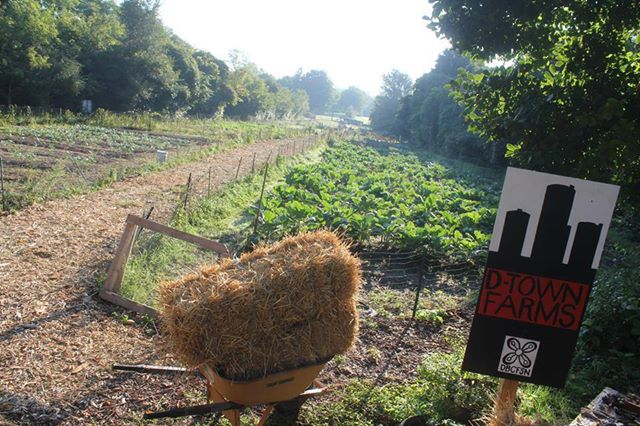Have you ever thought about where your food comes from? Have you ever wondered why the “regular” apple is bigger than the “organic” apple? Or what existed before grocery stores?
Waking up at the crack of dawn, planting tiny seeds smaller than your fingernail and layering compost like lasagna are a few things your local farmer does to provide you with fresh produce. From farm to table, nowadays local growers are making a bigger impact in communities around the world.
When we think of organic foods we usually think of a fruit, grain or vegetable grown without pesticides or any harmful chemicals, but who exactly is growing these types of crops?
Organic products are now available in nearly 20,000 natural food stores and nearly 3 out of 4 conventional grocery stores, according to the United States Department of Agriculture.
With many articles popping up with headlines such as “10 Ways to Eat Healthier,” and “The Truth about Organic Foods” we are sure to see a shift in societies eating habits along with awareness of naturally grown food vs. conventional food.
With the help of local farmers, communities around the world are able to choose their produce and poultry without chemicals that harm both themselves and the environment.
When you go to your local grocery store do you check your labels? Your ingredients? Do you look for tags that say things like “locally grown,” or “grown without antibiotics.”
If not, next time you’re at the store take a quick glance at the random tomato sauce on the self. You may discover the jar with the pretty label is full of everything but tomatoes.
Conventional food follows a standard model here in the United States and unfortunately the food you’re eating might be sprayed with certain herbicides, fungicides or pesticides unless otherwise stated on the package. That’s why your local garden is one of the most sacred places in your community.
For generations our ancestors have grown their own crops and raised their own cattle and more recently we have been getting back to our old traditional ways, with a great uprising of gardens and urban farms popping up in some of the most unexpected places. One of those places is the city of Detroit, the city known for their poverty, violence and bankruptcy. But more recently Detroit has been making a major shift in the food justice community.
Ever since farms like Earthworks Urban Farm, founded in the late 90s and Dtown Farms, which is one of the biggest gardens in the city we have seen an increase in farmland.
Detroit communities are working together to bring food equality to the people. In many ways than one, an urban garden is one way to uplift any community that lacks food equality and passion. Not only is a farm a nice way to learn how to grow food but it also brings people together, in a unified way to spread one common goal.
There is not just one person behind the development of the gardens in Detroit, there are hundreds of people that grace the land and lend a helping hand from all around the world.
There is something about dipping your hands in warm soil that you cultivated through the compost process. Turning your scraps from last night’s dinner into fertilizer for the soil your plants grow in.
